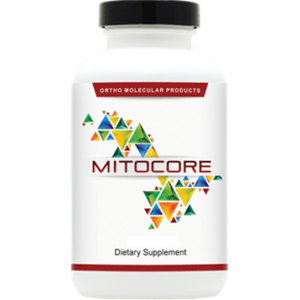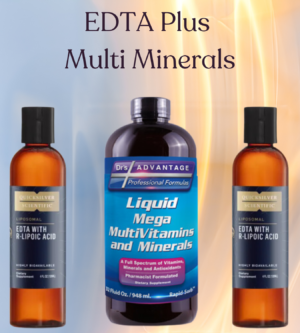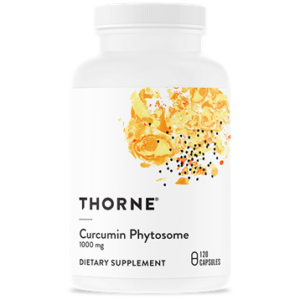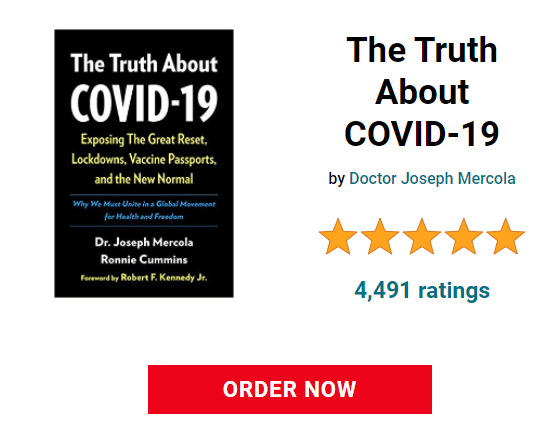NAC is crucial to lowering the severity of the illness and reducing the risk of long-haul symptoms. NAC is a precursor to glutathione and evidence suggests those with a glutathione deficiency have worse outcomes with COVID-19.
N-acetylcysteine (NAC) is a powerful antioxidant that was approved as a drug in September 1963. Since that time it’s been used as a nutritional supplement that is not found in natural sources. NAC contains the amino acid cysteine, which is a precursor to glutathione, also called “the master antioxidant.”
Glutathione is made of three amino acids — glutamic acid, glycine and cysteine. However, NAC is only available in supplement form. The precursors to NAC can be found in foods that are high in cysteine, which include pork, beef, chicken, eggs, dates and sunflower seeds.
NAC is used in prescription form for acetaminophen-induced hepatotoxicity, and it’s a powerful mucolytic agent for use in upper respiratory conditions. Memorial Sloan-Kettering also lists uses in the treatment of depression, precancers, HIV and AIDS, and to alleviate cancer treatment side effects.
In 2020, NAC made the news when the FDA decided over-the-counter sales of this compound, which at that time had been available for 57 years, should require a physician’s prescription going forward. The FDA issued warning letters to seven companies the agency said were illegally selling hangover products. By May 2021, Amazon, which also owns Whole Foods, decided to remove any supplements containing NAC.
FDA Requests More Information on NAC
As Natural Products Insider reports, the letters warned that NAC could not be “lawfully marketed in dietary supplements because it was first studied as a drug in 1963.” The Council for Responsible Nutrition (CRN) sent a letter in December 2020 to the FDA’s Office of Dietary Supplement Programs describing the position as “legally invalid.”
The CRN and the Natural Products Association (NPA) filed separate citizen petitions with the FDA. The CRN letter in December 2020 challenged the FDA’s determination that NAC should be precluded from supplementary use. They then filed a citizen position petition June 1, 2021, requesting the FDA reverse their position and outlining why this sudden policy change is “legally invalid on multiple grounds.”
The NPA filed a separate citizen petition with the FDA requesting that the agency not exclude NAC as a dietary supplement or, alternatively, that the Department of Health and Human Services (HHS) issue a regulation finding NAC is lawful in supplements. While the HHS has the authority, it has not been used in the 27 years since the law giving the HHS such power was enacted in 1994.
November 24, 2021, the FDA announced they were requesting more information about how NAC has been marketed as a dietary supplement. Natural Products Insider reports that this was encouraging to some in the industry as it signaled the FDA was open to the idea of issuing the regulation that NAC is a lawful ingredient in supplements. The FDA called this:
“… tentative responses to both citizen petitions, requesting additional information from the petitioners … and noting that the agency needs additional time to carefully and thoroughly review the complex questions posed in these petitions.”
The FDA also requested information and data on the date that NAC was first marketed as a dietary supplement, reports of adverse events and details on how the products are marketed and sold. The data are requested by January 25, 2022. Steve Mister, president and CEO of CRN said in a statement:
“The provisions of the Dietary Supplement Health and Education Act of 1994 (DSHEA) may not be interpreted retroactively to remove ingredients that were lawfully marketed in 1994 and have enjoyed a long history of safe use since then. The delay in clearing up the status of NAC by asking for more data and refusing to admit its error disregards the law and disserves consumers who use NAC.
This is not a complicated determination for the FDA to make. DSHEA makes clear that ingredients in use as dietary supplement ingredients prior to its enactment are grandfathered into the supplement marketplace. Thus, pharmaceutical manufacturers could not have had any expectation of exclusivity in the years prior to the creation of this provision of the law.
Given the long history of safe use of NAC, FDA cannot now try to establish a safety concern in order to award this ingredient exclusively to drug makers.”
FDA First Used Legally Questionable Drug Exclusion Provision
U.S. code Title 21, specifically defines what a dietary supplement is and is not. According to experts, the actions of the FDA in banning the sale of NAC and finding it a “medication” is illegal under the law. Attorney Stan Soper writes that under Title 21 §321 paragraph (ff)(3)(b)10 the actions of the FDA do not meet the Drug Exclusion Provision.
According to Soper, the exclusion provision has only been invoked a few times, specifically when used to keep red yeast rice, vitamin B6 and cannabidiol (CBD) from being sold as supplements. In each of these cases there was a potential pharmaceutical financial loss that triggered the assertion the supplement was illegal.
In the case of red yeast rice, it contains a naturally occurring substance that acts in a similar manner to Lovastatin, a statin medication. In 2005, drug manufacturer Biostratum filed an investigational new drug (IND) application with the FDA to use vitamin B6 in the treatment of diabetic kidney disease.
The argument was there was “no evidence that it was marketed as a dietary supplement or food prior to its IND and Phase II investigations.” In 2009 the FDA declared vitamin B6 was not a dietary supplement despite documentation that it had been sold as such before the IND application.
The FDA has also invoked the Drug Exclusion Provision against CBD, warning that it is not a legal dietary supplement since there was no meaningful evidence it was marketed as such before drug investigations were approved for Sativex and Epidiolex, which are drugs that contain CBD.
After the 2018 Farm Bill was signed legalizing hemp, then-FDA secretary Dr. Scott Gottlieb made the statement that it was illegal to introduce CBD into the food supply or market it as a supplement. Soper postulates that the use of the Drug Exclusion Provision against CBD may have opened the door for the FDA to use it against NAC.
Why Take Aim at NAC?
In the citizen petition sent to the FDA June 1, 2021, CRN argued that the FDA failed to sufficiently explain this sudden change in policy on NAC, thus “rendering it arbitrary and capricious.” According to CRN, before the seven warning letters in July 2020, “it was FDA’s longstanding policy to permit the marketing of dietary supplements containing NAC.”
Even though the agency had reviewed more than 100 notification structure/function claims for NAC-containing supplements over the years, they never raised the drug exclusion clause. In one response to a petition for a qualified health claim, the FDA had even stated that NAC was considered a dietary supplement.
While the Drug Exclusion Provision on CBD may have opened the door, it still raises the question of why the FDA chose now to target NAC. Historically the provision was used inappropriately to protect the finances of pharmaceutical companies. That is also likely the root of the motivation to ban NAC as a supplement.
As pulmonologist Dr. Roger Seheult succinctly explains in the MedCram video below, NAC is a crucial chemical compound necessary to reduce the oxidative stress associated with severe COVID-19 infections and thus may significantly impact the sales of antiviral drugs. And, as I and other health experts have pointed out in the past, without severe disease, is there truly a need for a vaccine?
2021 Bestsellers
-
Sale!
 Quick View Select options This product has multiple variants. The options may be chosen on the product page
Quick View Select options This product has multiple variants. The options may be chosen on the product pageOrgone Energy Sleeping Pods
$77.00 – $150.00 -
 Quick View Add to cart
Quick View Add to cartNutrition Challenge
$19.00 -
Sale!
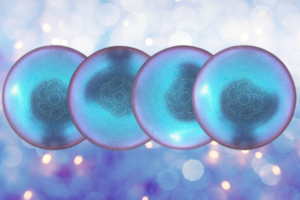 Quick View Add to cart
Quick View Add to cartOrgone Energy Sleeping Pods Special Offer!
Original price was: $308.00.$250.00Current price is: $250.00. -
Sale!
 Quick View Add to cart
Quick View Add to cartGraphene Oxide Removal Supplements – Special Offer!
Original price was: $294.44.$229.00Current price is: $229.00. -
Sale!
 Quick View Select options This product has multiple variants. The options may be chosen on the product page
Quick View Select options This product has multiple variants. The options may be chosen on the product page5 Orgonite Pendants
Original price was: $150.00.$95.00Current price is: $95.00. -
Sale!
 Quick View Select options This product has multiple variants. The options may be chosen on the product page
Quick View Select options This product has multiple variants. The options may be chosen on the product pageOrgonite Phone Shields for Radiation Protection
$89.00 – $184.00 -
 Quick View Add to cart
Quick View Add to cartNAC 500 mg. 90 caps
$29.00 -
Sale!
 Quick View Select options This product has multiple variants. The options may be chosen on the product page
Quick View Select options This product has multiple variants. The options may be chosen on the product pageOrgonite Shungite Pyramids
$95.00 – $335.00 -
Sale!
 Quick View Add to cart
Quick View Add to cartOrgonite Urban Garden Set
Original price was: $250.00.$190.00Current price is: $190.00. -
Sale!
 Quick View Select options This product has multiple variants. The options may be chosen on the product page
Quick View Select options This product has multiple variants. The options may be chosen on the product pageOrgonite Shungite Pyramids Special Offer!
$85.00 – $315.00 -
 Quick View Add to cart
Quick View Add to cartURIC-X 60 Capsules
$51.42 -
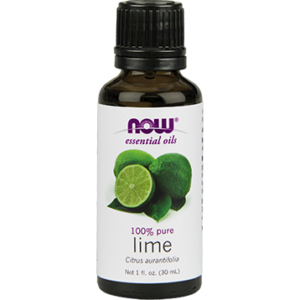 Quick View Add to cart
Quick View Add to cartLime Essential Oil 1 oz
$6.99 -
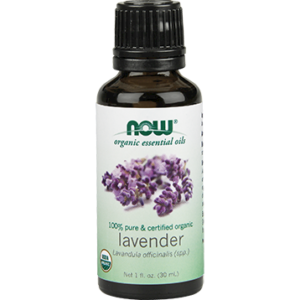 Quick View Select options This product has multiple variants. The options may be chosen on the product page
Quick View Select options This product has multiple variants. The options may be chosen on the product pageLAVENDER ESSENTIAL OIL ORGANIC 1 OZ
$13.99 – $39.99 -
 Quick View
Add to cart
Quick View
Add to cart
-
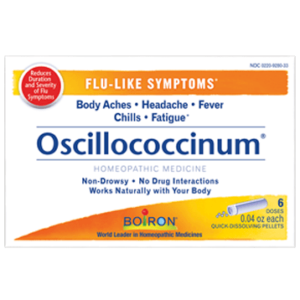 Quick View Add to cart
Quick View Add to cartOscillococcinum
$16.29 -
Sale!
 Quick View Add to cart
Quick View Add to cartHoneysuckle Flower Essence 20 ml
Original price was: $19.99.$17.69Current price is: $17.69. -
Sale!
 Quick View Add to cart
Quick View Add to cartRock Water Flower Essence 20 ml
Original price was: $19.99.$17.69Current price is: $17.69.
Glutathione Depletion Worsens COVID-19 Outcomes
Researchers have been studying NAC since it was discovered. In 2010, researchers found that it could inhibit the expression of proinflammatory cytokines in cells that were infected with highly pathogenic H5N1 influenza virus. These same proinflammatory cytokines play a crucial role in severe COVID-19.
Researchers have confirmed that in severe cases, cytokine levels are elevated and once they reach excessive levels it triggers a cytokine storm. This causes significant tissue damage that NAC may be able to inhibit. In one 2020 paper, the authors describe a case of COVID-19 in a patient with glucose-6-phosphate dehydrogenase (G6PD) deficiency, a genetic disorder that can lead to hemolytic anemia and which depletes glutathione, increasing the risk for human coronavirus infections such as the common cold. NAC was given to the G6PD-deficient patient and nine other COVID patients on ventilators. The NAC “elicited clinical improvement and markedly reduced C-reactive protein (CRP) in all patients.”
Other published papers have since demonstrated there is a potential use of NAC in the treatment of COVID-19. One 2021 study compared consecutive patients hospitalized with moderate or severe COVID-19 pneumonia. One group received only standard care and the other group received 600 mg of NAC twice daily for 14 days. There were 42 in the NAC group and 40 in the control group. Treatment with NAC led to lower rates of severe respiratory failure and significantly lower mortality rates.
Early at Home Treatment Is Crucial
NAC is only one in a line of treatment modalities that have proven to be successful but have been vilified by governmental agencies. Since the start of this pandemic, it seems global and national health authorities have done everything in their power to discourage and prevent people from accessing treatments, such as ivermectin and hydroxychloroquine, that compete with the COVID jab.
The actions around NAC appear to be yet another shameful attempt to prevent patients from helping themselves. By limiting access to nutritional supplements that have demonstrated the capability of reducing severity of the infection, agencies are essentially boosting the risk that infections progress into more serious cases.
Should you come down with symptoms of COVID-19, early treatment is crucial. Not only can it significantly reduce the length of time that you’re sick, but early treatment will also minimize your risk of long-hauler syndrome, which can include symptoms that last much longer than the original infection. This can include cough, body aches, difficulty sleeping, headaches and brain fog.
There is also scientific evidence that NAC can improve a variety of lung problems, including pneumonia and acute respiratory distress syndrome (ARDS), common characteristics of COVID-19. For example:
- Research published in 2018 found NAC reduces oxidative and inflammatory damage in patients with community-acquired pneumonia.
- Another 2018 study found NAC improves postoperative lung function in patients undergoing liver transplantation.
- A 2017 meta-analysis found a significant reduction in ICU stays among ARDS patients treated with NAC.
- NAC is also a well-known mucolytic used to help clear mucus out of the airways of cystic fibrosis patients. Some studies also suggest NAC can help reduce symptoms of COPD and prevent exacerbation of the condition.
“The Truth About COVID-19” exposes the hidden agenda behind the pandemic, showing the countermeasures have nothing to do with public health and everything to do with ushering in a new social and economic system based on totalitarian, technocracy-led control. So, it’s not misinformation they fear. It’s the truth they want to prevent from spreading. Pick up a copy of this best-selling book today before it’s too late.
By Dr. Joseph Mercola
Source article available until Dec. 16, 2021: https://articles.mercola.com/sites/articles/archive/2021/12/15/fda-wants-more-information-on-nac.aspx?cid_source=gab&cid_medium=social&cid_content=mercola&cid=nonlead_20211215
